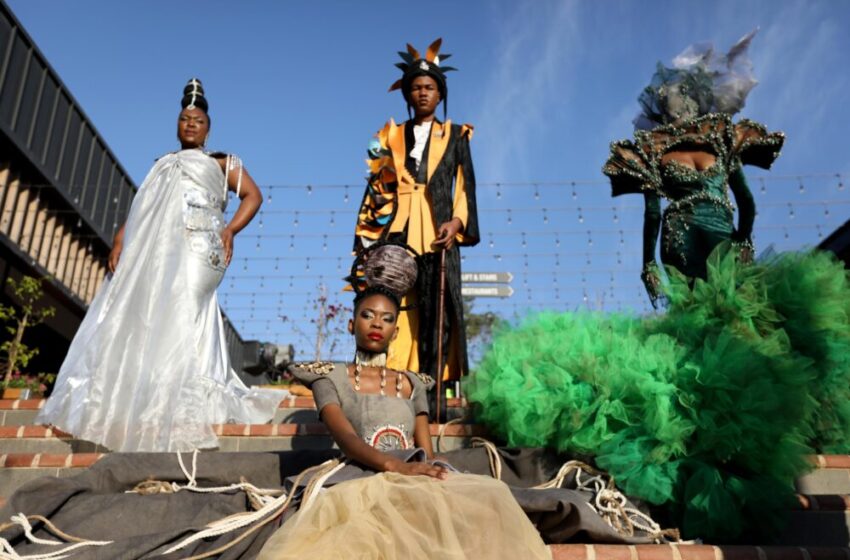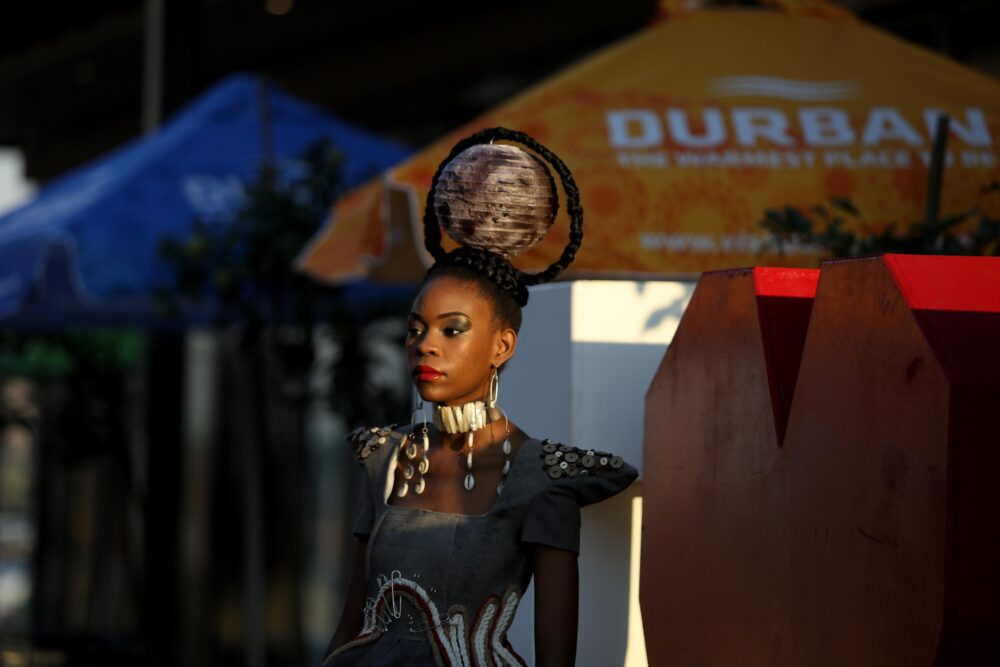Durban July 2025: What to know about South Africa’s most stylish weekend of the year

Race day glamour meets real economic impact — Durban July 2025 expected to boost local economy by R700 million and attract over 45,000 visitors to the city. Photo credit: The Mail & Guardian.
Each year, as winter cools the KwaZulu-Natal coastline, the city of Durban comes alive with one of Africa’s most iconic spectacles—the Hollywoodbets Durban July. But this isn’t just a horse race; it’s a fusion of sport, fashion, tourism, and economic opportunity.
In 2025, the Durban July is expected to inject nearly R700 million into the eThekwini economy, according to Mayor Cyril Xaba. Over 45,000 visitors are projected to attend, with thousands more joining in virtually and from hospitality venues around the city. From high-end fashion to township street vendors, the economic ripple touches all layers of society.
As the race kicks off at Greyville Racecourse this Saturday, we explore its financial impact, cultural significance, and deep historical roots that make it a truly South African legacy.
Durban July History: From Colonial Race Day to a Continental Cultural Phenomenon
The Durban July Handicap dates back to 1897, originally established as a modest event for British colonial elites in what was then Natal. It started as a middle-distance race for only three-year-old horses and has since evolved into South Africa’s most prestigious horse racing event.
By the 1970s, the event began to shed its colonial exclusivity, drawing a broader demographic as the country changed. Post-apartheid, the Durban July became a canvas of cultural expression—embracing African fashion, music, and entrepreneurship. Today, it reflects the spirit of a nation that blends tradition with transformation, making it a flagship for both horse racing heritage and pan-African culture.
Durban July Economic Impact 2025: How the Event Will Inject R700 Million Into the Local Economy
This year’s Durban July is projected to pump R700 million into Durban’s economy, according to eThekwini officials. The figure includes over R278 million in direct spending, which comes from tickets, accommodation, food, beverage, transport, and retail purchases.
It is more than just headline figures. This spending strengthens small businesses, energises supply chains, and triggers a seasonal high for Durban’s tourism sector. Restaurants, bars, boutiques, makeup artists, hairstylists, and security companies all experience significant spikes in demand.
Job Creation at Durban July: Over 4,000 Employment Opportunities
Beyond economic figures, the Durban July creates thousands of jobs, especially in the informal and hospitality sectors. The city anticipates 4,000 to 4,403 temporary roles across event staffing, transportation, catering, cleaning, and entertainment services.
These job opportunities are especially vital in a region battling youth unemployment and slow economic growth. For many, the event offers seasonal income and often a stepping stone to more permanent roles in event planning, tourism, and fashion.
Tourism and Hotel Occupancy: Durban July Attracts Over 45,000 Visitors
With attendance expected to reach over 45,000 racegoers, Durban’s hotels are forecast to achieve occupancy rates above 80% during the weekend. Visitors are arriving from all over South Africa—and internationally—as Durban July cements its status as Africa’s premier winter racing festival.
From beachfront lodges to five-star hotels, accommodation bookings have surged. This tourism wave boosts not just the hospitality sector but also transport providers, local tour guides, shuttle services, and informal street vendors who benefit from the increased foot traffic.

Fashion and Culture at Durban July 2025: Celebrating ‘Marvels of Mzansi’
This year’s theme, “Marvels of Mzansi,” celebrates South African brilliance in fashion, music, and art. The Durban July has long evolved into a cultural runway where designers, stylists, and celebrities unveil their boldest creations.
The fashion-forward crowd arrives dressed in avant-garde pieces inspired by local stories, heritage prints, and futuristic African designs. Live performances, red carpet moments, and after-parties across the city elevate the race into a weekend-long celebration of identity and creativity.
Durban July and Informal Traders: Boosting Township and Micro Businesses
The Durban July extends its economic footprint into townships and peri-urban areas through its support of informal and micro businesses. From street food vendors near Greyville to hairstylists in Umlazi preparing clients for the big event, entrepreneurs across the value chain benefit from increased demand.
This year, eThekwini municipality also rolled out support programmes to help local SMMEs and creatives tap into the economic potential of the event. For many, the weekend is a seasonal lifeline, with earnings made in July sustaining livelihoods for weeks after.
Durban’s Broader Economic Outlook: Why Events Like Durban July Are Essential
In 2024, Durban recorded a net loss of 1,476 small businesses, although youth employment saw a modest rise. Meanwhile, KwaZulu-Natal contributed 16.1% to national GDP, but infrastructure backlogs and urban migration continue to pressure the system.
Events like the Durban July bridge the gap between short-term stimulus and long-term recovery. With sluggish national growth and interest rates still high, large-scale local events that drive cash flow and jobs are more critical than ever for regional economic resilience.
Durban July 2025 – A Symbol of Resilience, Culture, and Shared Growth
From its colonial beginnings to its current status as a symbol of South African flair, the Durban July 2025 is more than just a race. It is a display of economic synergy, cultural pride, and social upliftment.
As the horses thunder down the Greyville track this Saturday, they won’t just be racing for glory—they’ll be pulling behind them a city’s hopes, small businesses’ survival, and a nation’s need for celebration and recovery. Durban July remains the clearest example of how entertainment, heritage, and economy can unite in spectacular fashion.

